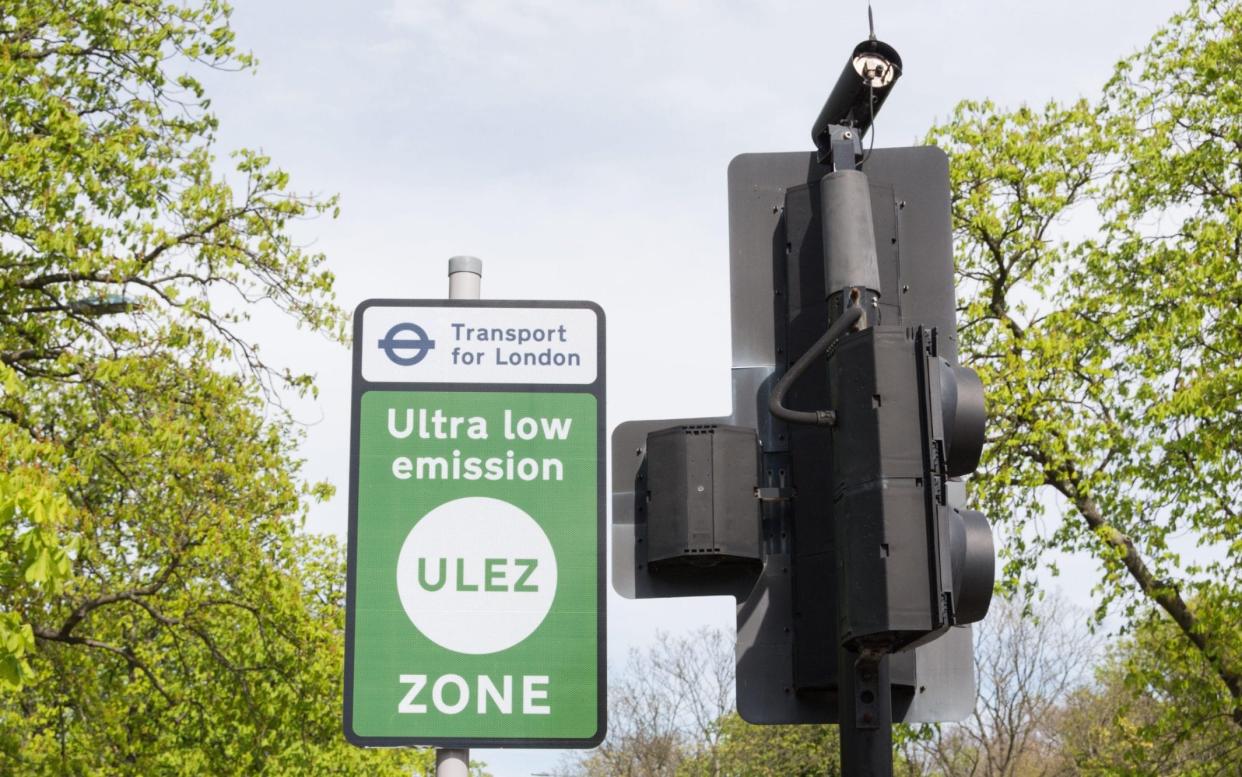Sadiq Khan’s new Ulez cameras could be used by Met Police

- Oops!Something went wrong.Please try again later.
Concerns have been raised over plans that Sadiq Khan has given the Metropolitan Police access to cameras set to be installed as part of his expansion of the Ulez zone.
Privacy campaign groups have called on the mayor to reverse the plans after Transport for London papers revealed the Met would be deciding on what cameras within the newly expanded zone that they would have access to.
In papers released to Transport for London’s Audit and Assurance Committee earlier this week, the Greater London Authority revealed that the mayor had given TfL permission to share information from the new cameras.
The paper said: “The Met Police are currently working to complete their assessment of which additional cameras they want access to and what the privacy and equalities impacts would be, for submission to TfL, prior to any access being given.”
The mayor is set to expand the Ulez zone to all 32 London boroughs in August, with cars that do not meet emissions standards being required to pay a £12.50 a day charge to use their cars. So far more than 300 of the 2,750 cameras have been installed across the majority of new boroughs.
However, privacy campaign groups have raised concerns about the mayor’s willingness to share the information gathered by the cameras with the police.
Mark Johnson, advocacy manager at Big Brother Watch, told The Telegraph that the move by Mr Khan to give police access to the new Ulez database was a “deeply concerning step”.
He said: “ANPR is one of the largest surveillance networks in the UK but is dangerously unregulated.”
He added that London was one of the most surveilled cities in the world already, and the mayor needed to pay more heed to the Londoners’ right to privacy and shelve these plans.
According to the mayor’s office, TfL has been providing the police with access to cameras since 2007 for national security purposes and 2015 for general policing. It was in 2022 that Sadiq Khan gave the Met access to the additional cameras to support the expansion of Ulez.
The revelations come just weeks after The Telegraph revealed that the mayor was plotting to use the cameras bought to police Ulez to help to run a future “pay-as-you-drive” scheme in the capital.
While he was keen to point out that no plans had been developed yet, the mayor confirmed that software engineers had been hired to develop the plan and the city could see it introduced by the end of the decade.
This followed previous controversy over the cameras, when it was revealed the mayor had purchased ANPR cameras two months before the Ulez expansion consultation was launched.
The Ulez cameras have increasingly become the focus of some Londoners, with several cameras across the capital being vandalised or having their wires cut.
More than 18,000 requests for information
The papers to the TfL committee revealed the extent to which information was being shared with the Met across London’s transport network.
Last year, a total of 18,130 requests for information were made by the Met for ticketing and bankcard data, body worn video and CCTV film.
Of these, 196 were requests relating to murder or fatality investigations, while 3,002 related to theft and handling offences.
The report also revealed that the level of reported sexual offences on the public transport network increased by 35 per cent.
A spokesman for the Mayor of London said: “The use of technology has a key role to play in tackling serious crime and making London safer for everyone.
“The use of traffic cameras for ANPR on our roads, which assist in crime prevention and investigation, has been in place since 2015 after being introduced by the previous Mayor.
“Access by the Met to newly installed cameras in outer London is in accordance with data protection requirements and will only be granted by Transport for London subject to this being demonstrated as proportionate and necessary on a case-by-case basis.”

